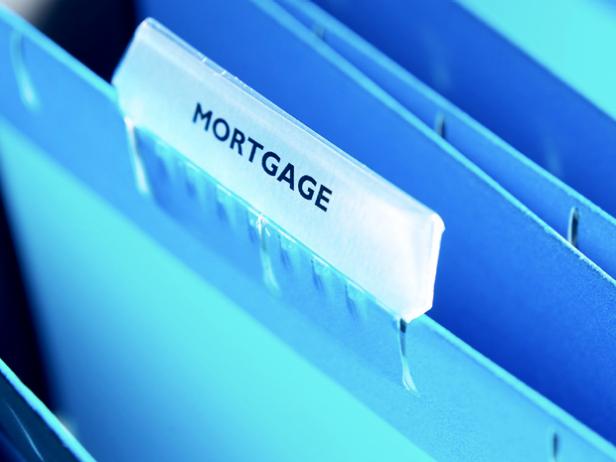Drama-Free Real Estate: Top 10 Ways to Finance a Home

Mortgage -- what used to be such a dry, even boring financial topic is now riddled with emotional landmines and drama potential.
Maybe, like lots of Americans, your home equity is upside down and you can’t refinance? Or you suspect your mortgage broker might be a con-artist? Perhaps your loan qualifications are great, but your spouse’s credit is, well, not so attractive.
Whether you're trying to get a loan to buy a home or simply trying to keep the home you have, FrontDoor Insider Tara-Nicholle Nelson will help you defuse the potentially explosive drama of home financing with 10 surefire strategies.
#1: Fix your broken ARM.
When I hear talk of fixing an ARM, or adjustable rate mortgage, I envision a mortgage broker hammering away at a broken loan, then stepping aside for the reality-show style reveal -- the ugly duckling ARM is now a swan of a fixed rate mortgage! While not every ARM is broken or requires fixing, if you have an interest-only or negative-amortization ARM, your payments could go up (even double!) when the loan adjusts. Wash the ARM drama right out of your hair with a simple action plan:
Who ya’ gonna call? Your lender! These days, lots of lenders are fixing their current borrowers’ soon-to-adjust ARMs just on general principle -- it has begun to dawn on them that a skyrocketing payment makes it pretty likely your home will end up in foreclosure, which costs them money. Don’t hesitate to call just because you have little or no equity. Some lenders see that as a good reason to fix your loan voluntarily, because you probably won’t be able to refinance with another lender. If you’ve tried to call your lender before and got nowhere, try again. After April 2009, the stimulus plan will literally pay lenders who help on-time borrowers fix their loans and lower their monthly payments, so you might have a better chance then.
Refi-fo-fum. Don’t assume that refinancing your ARM into a fixed rate mortgage is impossible because you’re upside down and mortgage money is scarce. Though the headlines blast the bad news that 10 percent of homeowners are upside down, that means that 90 percent of homeowners do have some home equity. So long as you also have decent credit, you might find it easier to qualify for a refi than you think! Get in touch with your mortgage broker and have them refinance your ARM into a fixed-rate loan at today’s uber-low interest rates.
Your legal last resort. Upside down and your lender won’t help? If you are also late on your mortgage or your original deal violated predatory lending laws, you might be able to nudge your lender into modifying your ARM into a fixed-rate loan. Rather than tackle the task of distinguishing the loan modification consultant heroes from the zeros, hire a reputable attorney with a track record of success at negotiating mortgage mods.
#2: Take smart, simple steps when you are facing foreclosure.
Not everyone facing foreclosure took a liar’s loan or just decided to walk away -- job loss, divorce and even medical problems can put a responsible homeowner in danger of losing their home. Tragically, the ostrich response tends to be very popular among homeowners facing foreclosure. Over half go through the six-month process without ever once speaking to their lender! If you have life issues or money issues that are causing issues with paying your mortgage, don’t ignore the problem. Take a deep breath, then take these steps:
Are you in or out? Your home is not disposable. Walking away just because it has depreciated is simply not cool. But, realistically, some folks simply don’t have the income to hold on to the home. Before you do anything else, figure out whether you can afford to keep it. Get a clear fix on what comes in and goes out every month and how much longer you expect your money problems to last. You’ll need that information when you talk with your mortgage company to sort things out, no matter what you decide.
Don’t check out -- check in with your lender. When you are fighting foreclosure, your mantra should be, “call, answer, open:” call your lender incessantly, answer their calls and open their mail. Lots of lenders are offering to waive or lower payments for folks who are falling behind, but your offer might come in the mail. If you avoid the mail to keep bad news from bringing you down, you’ll also miss out on any good news or opportunities to get back on track. Other lenders will work with you to make your mortgage more affordable, but only if you reach out to them first.
If you’re sure you can get back on track with a little help from your lender, but they won’t play ball, consider hiring a loan modification attorney to run interference for you.
Damage control, stat. If your cash flow simply can’t stretch to cover the mortgage, even with some help from your mortgage company, switch into damage control mode, and take steps to get closure as painlessly as possible. List your home with a Realtor who has had success negotiating short sales. If it doesn’t sell within two or three months, talk to your lender about a deed-in-lieu of foreclosure, a process in which you deed your home back to the bank with minimal legal drama and fanfare. If your lender agrees that your personal economy is in a recession, they might even cut you a check to help you move!
Don't ignore your mail when foreclosure looms. You may miss out on an offer to waive or lower your payments.
#3: Find funds to boost your down payment.
Zero down.100 percent financing. These mortgage ad slogans from just a few years ago might as well be relics in some home finance museum, because the no-money-down ship has definitely sailed. But what do you do if you’re trying to bust in to the market with a busted bank account? Use this treasure map to find funds to fill out your down payment, without blowing your chances with the bank.
Get down (payment help from your) town. Many cities and states -- the government entities themselves -- offer Downpayment Assistance Programs (DAP) for first-time homebuyers or buyers within a certain income level. These programs can offer big chunks of money, as much as $75,000, to go toward your down payment, and often offer fabulous features like deferred payments (anywhere from 3 to 30 years) and way below market interest rates. Of course, they sometimes add their own restrictions to your transaction too, like requiring you to put a certain amount of your own money into the deal or requiring that the property you buy meet minimum condition guidelines.
Government DAPs are to be distinguished from seller-assisted DAP programs like AmeriDream and Nehemiah, which were outlawed by legislation in 2008, though they’re still fighting to get back in business. To find the DAP options in your area, Google your state’s and city’s official Web sites and click on 'housing’ or 'economic development,' and check the Department of Housing and Urban Development’s roster of government DAPs at HUD.gov/local.
Now, that’s what I call a fringe benefit. If you are a public servant, you’re probably underpaid for the incredibly important work you do. But you've got a major perk: there are lots of down payment assistance programs dedicated to law enforcement officers, firefighters and teachers! They vary widely -- some offering low-interest loans, with others actually fronting a chunk of money to help those who help the rest of us. To see what’s available, check with your HR department and your mortgage broker -- they usually have the hookup.
Gift money -- it’s all relative. You can buy with a little help from your family, not friends. If you’re using an FHA loan, you can receive as much or as little of a gift toward your down payment from a relative as they are willing to give. All you need is the money and a letter from your kin confirming that it was a gift, not a loan. Conventional loans have much trickier gift money guidelines. Definitely let your mortgage pro know ASAP when you think a gift might be in the works, so they can help set things up for success. Oh and definitely say an enormous 'thank you’ to the giver!
#4: Know when it’s time to refi.
It seems to me that my mortgage broker buddies spend about 50 percent of their time brokering loans, and the other 50 percent of their time taking calls from their former clients asking, “Is this a good time to refinance?” Few things cause homeowners ongoing angst like the ever-open question of whether they should refinance their home loan. There are a huge number of things that can provoke thoughts of refi-ing:
- Your BFF gets a mortgage at 5 percent. Does that mean you should refi?
- You hear a radio announcement that rates are at a record low. Time to refi, right?
- A postcard comes in the mail offering to refinance your mortgage at a full point less than your current rate. That’s gotta mean you should be refinancing your loan. Errm, doesn’t it?
Let’s stop the mortgage mystery. Here’s how to know if the time is nigh for you to refi.
Why refi? There are really only three major reasons to refinance your home loan. The most popular reason these days is to get a lower interest rate and reduce your monthly mortgage payments. It also makes sense to refinance an adjustable rate mortgage (ARM) into a mortgage with a longer period of fixed interest and payments. And, if you have any home equity, you can also refinance to borrow cash against that equity. But, borrower beware of borrowing too heavily against your home’s equity: many who lost their homes to foreclosure got in trouble by ceaselessly borrowing against their home equity for unworthy causes like cars and vacays.
Mortgage, may I? By definition, refinancing involves trading one loan for another, better loan. That means the new loan has to pay the old one off to make things work. For the loan swap to work, the collateral -- your house -- must be worth at least the amount of the new loan. The upshot? If you owe more on your current mortgage than your home is currently worth, it’s impossible to refinance into a new loan without writing a check to help pay off the old loan and pay the new loan’s closing costs.
Are falling values fouling up your refi plans? Under the stimulus plan, there’s a temporary exception to this equity issue. If you qualify, you can be slightly underwater and still trade loans for a lower rate. Check MakingHomeAffordable.com to see if you’re eligible.
Do the math. Refinancing costs money -- usually between 1 percent and 2 percent of the new loan’s amount. So you don’t want to be doing it every five minutes, or every time rates drop a fraction of a percent. Worthwhile refis save you more on your monthly payments over the time you plan to hold the loan than they cost to execute. Ask your mortgage pro to help you do the math and project how low rates must go to trigger a refi that makes sense for you. Then, forever after, you won’t rush to call your mortgage broker every time you hear any old low-sounding interest rate quoted on the radio. You’ll have your own personal refi trigger rate!
#5: Debunk mortgage myths and know what it really takes to get a home loan.
Bad news travels fast, so when mortgage guidelines tightened up, word spread faster than rumors of an A-list baby bump sighting. Problem is, the rumor mill is just not the most reliable source of money advice. It’s just not as hard to qualify for a home loan as most would-be buyers believe. If you want to jump into this buyer-friendly market, here’s the straight dope on what it actually takes to get a loan.
What’s your number, baby? Contrary to popular belief, it does not take 20 percent down and a 850 FICO score to get a home loan. When the subprime, zero down, must-only-be-human-to-apply-type loans disappeared, the Federal Housing Administration (FHA) stepped up to make sure that normal folks would still be able to afford homes by vouching for low-down payment loans. An FHA loan -- now the loan du jour -- only requires a 3.5 percent down payment, and you can get one at most banks with a decent credit score: 620 or thereabouts. And these are really good loans -- fixed for 30 years at low interest rates. No, they won’t let you go out and buy a Russell-and-Kimora-esque manse on a nurse’s salary, but you didn’t really need to do that anyway, now did you?
The downside -- with an FHA loan, you’ll pay an extra Mortgage Insurance Premium to defray the risks of lending to you. It’s an extra 1 percent at closing compared to what you’d pay for private mortgage insurance on a conventional loan. So if you have at least 10 percent down and a strong credit score, look at whether a conventional loan would save you a chunk of change on mortgage insurance.
Supersized loans. If you need a home loan that’s above the FHA loan limit in your area -- for 2009, between $417,000 and $729,700, depending on where you live -- you’ll need a conventional (i.e., non-FHA) loan. That means you’ll also need about 10 percent down and good credit -- a 720 FICO is a pretty common requirement to get good interest rates. If you have the 10 percent and you need a loan over the $417,000 conforming limit but under the FHA loan limit for your area, you should probably compare rates on FHA and conventional loans. FHA loan interest rates shoot up for “jumbo” loans.
Ratio-ning. There’s always the question of how much debt you can have and still get a home loan. But that’s not the right question: if you meet the credit, assets and other guidelines for a loan, you’ll qualify for that loan. But the loan amount for which you qualify hinges on your debt-to-income (DTI) ratio, an expression of how much of your income will be obligated to debt payments after you take on a certain mortgage payment. These days, you can get a loan with a total back-end maximum DTI ratio of 43 percent to 50 percent, depending on the bank, your other qualifications and the loan program.
Minus the mortgage gibberish: All the monthly bills that show up on your credit report plus your new mortgage can’t exceed 43 percent to 50 percent of your gross monthly income. Your mortgage pro can help you work backwards from various price points to figure out how much you can afford with your current debt and how much more purchasing power you’ll get if you pay off some bills or bulk up your down payment.
Too many would-be buyers wrongly assume they won’t qualify and think they have to let this incredible buyer’s market pass them by. Don’t let mortgage myths make you miss out!
#6: Protect yourself when you bypass the bank.
Seems like seller financing would be the best of all worlds, right? No bank qualifications you can’t meet, no underwriter who requests the same copy of the same paycheck stub you’ve already produced three times, no loan closing costs -- what’s there not to like? Seller-financed deals hold the potential to be just that good, but nothing is perfect. Make sure that your homeownership experience doesn’t go haywire when your home’s seller finances the deal.
Use protection. Banks build lots of stuff into real estate transactions to protect their interest in the houses they make mortgages on, and those protections often work in favor of their borrowers’ interests too! If the seller is financing your purchase, it’s all too easy to forgo what may seem like bank-mandated formalities like a title search and title insurance. A title search ensures that the seller has the right to sell to you in the first place and makes sure you’re not buying a place that’s already in foreclosure.
Similar protections that can go overlooked when there’s no bank monitoring the deal are obtaining a robust homeowners’ insurance policy prior to close of escrow, reviewing legally mandated seller disclosures and even recording your title to the home in your county’s property records. These items shield you from disasters as serious as losing the property and are absolute musts. There’s also logistics involved. For example, your bank issues annual tax documents you can use to deduct your mortgage interest. Is the seller prepared to do that? Make sure you have a Realtor, attorney and/or escrow holder on board to line up these legal and logistical lifesavers.
Don’t go overboard. Some buyers are so relieved and grateful to get seller-financing that they overpay the seller, agreeing to an interest rate or purchase price that is out of whack compared to the fair market value. With a bank-financed deal, the appraiser is the fail-safe against paying more than the place is worth. In a seller-financed deal, it’s up to you and your Realtor to analyze recent comparable sales in the neighborhood and be sure they justify the price you pay. It’s fair to add a small premium or pay on the high end of the justified price range for the perk of seller-financing. The seller is making your life easier and agreeing to postpone receiving their money, and that’s worth something.
On interest rates, again, it’s fair to pay a smidge more than you would pay the bank for a similar loan, because there’s value to escaping loan origination fees and the underwriting obstacle course. But you may want to go ahead and get a mortgage broker’s good faith estimate for the bank-financing equivalent of the loan being offered by the seller. Make sure you’re not paying a huge premium for the privilege of writing your check to the seller.
Gratitude is normally a good thing. But in a seller-financed deal, too much gratitude can get in the way of good judgment and attention to detail, and there’s no bank underwriter with guidelines that will have your back. So hire a team of pros to make sure your interests are protected. And if it helps, keep in mind that the seller should be grateful for your willingness to do the deal too!
#7: Pick the right mortgage pro for your situation.
As that popular rap song goes: “More money, more problems.” Doesn’t it seem like the more money is involved in an industry, the more scam artists and charlatans work in that field? That’s certainly true with the mortgage industry, but for every fraudulent financier, there are a dozen honest mortgage mavens who can hook you up with the funds you need to finance your home. Here are some simple steps you can take to make sure your mortgage specialist is both honest and the right pro for the job.
In referrals we trust. Finding a mortgage broker who is worthy of your trust is an important task, but it doesn’t have to be a difficult one. The best way? Ask your friends and relatives -- someone you know must have a mortgage rep they swear by. And one of the best sources of mortgage referrals is a frequently overlooked one -- your Realtor. Even if you bought your home years ago and are just wanting to refi, your Realtor stays in the know on which reputable local loan reps have access to the loan options you need.
In the mortgage realm, because there are so many different types of professionals, it’s sometimes tough to know what sort of referral you even need. There are mortgage brokers who shop a bunch of different lenders, mortgage representatives who are employed by (and thus only work with) a single lender, and all sorts of service providers in the business of modifying loans. Let your mortgage project determine the type of pro you seek out.
Straight from the lender's mouth. If you’re trying to stimulate your household economy by taking advantage of the stimulus plan, go straight to your lender. If you qualify for one of the stimulus modification or refinancing options, they’ll make it happen. Even if you’re not looking for stimulus help, but you would like to explore your refinancing or loan modification options, you should always check in with your current mortgage holder and your personal bank or credit union to see if they can waive fees, get it done faster or offer you some other preference for being an existing customer. But be sure to compare their offer against your mortgage broker’s to make sure you’re getting the best deal. And remember, these mortgage reps work for the bank, not for you, so their goal is to sell you what their bank offers, which may or may not be the most appropriate loan for you.
Broker is better. In almost every scenario, it’s a good idea to get a mortgage quote from a reputable mortgage broker, even if you’re also going to get one direct from your lender. Brokers know how to work the system to get you the best deal, and they generally have access to tons of lenders, so they do the hard work of shopping for you. But make sure you use a broker you find by referral. They want to earn your repeat business, so they’ll do everything possible to get you the lowest rate and best terms on the right loan for you.
#8: Get a clue about cash to close.
There are few matters in real estate as mysterious as the concept of the cash a homebuyer needs to close escrow. Your down payment is only one of the chunks of change you need to have on hand to get the keys to your new home. Before you even get pre-approved, know how deeply you’ll have to dig to do the deal.
The importance of being earnest. When you first make an offer on a home, you’ll need to come up with an earnest money deposit -- 1 percent of your offer price is about the norm. Funny name, but descriptive -- this dough just tells the seller that you are serious or in earnest about buying their home. You’re communicating that they should take you seriously enough to pull their place off the market while you do your inspections, appraisal and loan underwriting.
Depending on your contract, you might need to increase your deposit when you remove your contingencies or your objection period expires -- a 2 percent increase is not uncommon, though this varies widely depending on the contract, standard local practices and the property’s price point. The precise details of your earnest money deposits are negotiable with the seller.
The best part about earnest money deposits? If the deal goes as planned, the money goes into your escrow account, not to the seller. Then, when you close escrow it is credited toward your closing costs and down payment. The worst part? In many states, if you back out of the deal after removing contingencies or waiving objections, you forfeit that money to the seller.
Down by the buy. Be careful not to confuse your deposits with your down payment -- your down payment is the difference between the purchase price and your mortgage amount. And it has nothing to do with the seller -- this is all about your agreement with your lender, as your down payment has a major impact on whether you qualify, on your interest rate and on your monthly payment.
To your credit -- closing cost credit, that is. Every business deal costs money to do, and buying your home is no exception. Your closing costs include line items like your loan origination fee, title insurance, escrow services and even taxes some areas charge every time a property changes hands -- and they all have to get paid before you can close. More and more, sellers are agreeing to pay closing cost credits, literally funds that come out of the sale price and are credited to your account at closing to defray your expenses. Closing costs range anywhere from about 2 percent to 5 percent of the purchase price, with FHA loans incurring costs on the higher end of the range and high-priced properties coming in at the lower end.
The million dollar question is how these three elements of cash to close relate to one another. Here’s the pleasant surprise -- you may not have to come up with deposit money, plus down payment money, plus closing cost money, especially if you negotiate a seller closing cost credit. At closing, the escrow holder draws up a balance sheet listing all the debits and credits to your account. The price you agreed to pay and your closing costs go on the debit side, but your earnest money deposit, the loan money from your lender and any closing cost credits the seller agreed to go on the credit side. Subtract, and you get the amount you need to bring in to get your keys.
So, for example, if you put down a 3 percent deposit, got a 3 percent closing cost credit, incurred 3 percent closing costs and want to make a 3.5 percent down payment -- you’d only need to bring in a half of 1 percent to close. Without the closing cost credit from the seller, though, you’d need to bring in 3.5 percent at closing in order to seal the deal. With cash to close, it all comes out in the wash. Real estate mystery: solved!
#9: Foreclosure-proof your home, before you even buy it!
The finance fear factor involved in buying a home has grown particularly intense in the aftermath of the foreclosure crisis. Seeing constant news reports about the tragic consequences of bad real estate and mortgage decisions makes it tough for buyers not to wonder, “how can I avoid that?!” If you’re about to buy a home, and you’ve had this exact thought, you’re in luck -- learn from their mistakes and position yourself to avoid foreclosure in just a few simple steps.
Think long term. Don’t buy a place planning to sell it in a year. Really, you should only buy if you’ll be comfortable owning the home for at least four or five years. As we’ve seen recently, one year you might be able to sell at top dollar in just a few days, and the next year it might take months to move the same house at a deep discount. If you plan from the outset to commit to the home for a few years, your home and loan choices will be less likely to force you into a financial crisis.
Intelligent (mortgage) design. Take charge of your mortgage choices and make sustainability your goal. Let your household spending plan and a reality-based projection of your income over time dictate how much you pay for your home. Tell your Realtor and mortgage broker how much you can spend on housing every month, rather than letting them tell you what you can afford. That may mean you end up buying a lower-priced home than you qualify for, a decision many owners who have now gone through foreclosure wish they had made back when they had the choice.
Sustainability should also be your guiding force when it comes to the type of mortgage you choose -- with so many low-interest mortgages with fixed interest rates and payments available, it just doesn’t make sense to take on a loan where your payment will double in a year or two (or three, for that matter)! Actually, don’t make any mortgage move where your ability to hold onto your home relies on your ability to refinance your home in less than five years -- that’s like betting your home on a short-term prediction of home values, and that’s not a good move.
Cultivate a cushion. Saving money hasn’t been a priority of American homeowners for some time now. When everyone’s home was wildly appreciating, there was always cash to be had from equity lines and loans. With no real savings, though, even a temporary job loss doomed homeowners to foreclosure. To insulate your home from foreclosure, start the savings habit and shoot to create an emergency cushion of six months’ mortgage payments and other living expenses.
Get a shredder. Homeowners who used their homes like ATM machines have been much more likely to end up in foreclosure. So, decide in advance to avoid frequent or excessive borrowing against the equity in your home. And arm yourself against the barrage of equity credit offers you’ll get as a homeowner. Be prepared to shred the junk mail that comes before you have a chance to start daydreaming about that Bahamas cruise you could take if you just got a small equity line.
Put a Plan B in place. Income glitches due to a death in the family or a job-stopping disability lead to almost as many foreclosures as mortgage problems. Make sure all wage-earners have life and disability insurance policies in place to keep one unfortunate event from turning into a double-whammy.
Learn from the mistakes that caused the foreclosure crisis: Let your household spending plan and a reality-based projection of your income over time dictate how much you pay for your home.
#10. Know the ins and outs of your mortgage.
Eliminating mortgage anxiety from your life doesn’t require a Ph.D. in finance. The road to no more drama starts with taking a few steps to understanding the major features of your home loan. Most of us can remember a time, during escrow, when the details of our loan were our life’s primary obsession. A few years later, though, those days and that data are foggy memories. Don’t get caught by a surprise loan adjustment or miss out on potential refi savings because you don’t know what your loan is all about. Dig out those loan docs or give your lender a ring, and get in the know about every mortgage you have on your home.
Who’s who and what’s what. Every homeowner should know which bank or mortgage servicer is handling their loan at all times, and whether their loan is government-insured. This is especially key if you think you might need a loan modification to get your payments back on track, as your lender is the first place you’ll need to call. But before you do, you’ll want to know if your loan is an FHA, Fannie Mae, Freddie Mac or VA backed loan -- something you’ll find in your loan documents. If so, your lender is required to make more loan mod options available to help you out if you get in a bind.
Your loan type -- fixed or adjustable -- is potentially the most essential piece of information you need to know about your mortgage. You should be able to tell that from your mortgage payment coupons. The idea is to know what you need to be planning for. Can you count on having the same payment forever or do you need to anticipate adjustments?
Ch-ch-ch-ch-changes. If you have an adjustable rate mortgage, or ARM, you’ve got lots more investigating to do. You need all the details of the planned adjustment, things like:
- Is your loan an amortizing ARM, an interest-only ARM or a negatively amortizing, or Option ARM?
- When is it set to adjust, and how often will it adjust thereafter?
- What index does your loan adjust based on, and what sort of payment increase is projected, roughly, based on today’s rate for that index?
- If you currently have an Option ARM, how much interest are you adding to your balance every month when you make the minimum payment?
- ARMs all have a cap for how much the payment and interest can ever go up -- what’s your loan’s adjustment cap?
Analyze whether you’ll be penalized. Though less common these days (fortunately), prepayment penalties must be factored into your mortgage planning, especially if you’re considering selling or you have an ARM you plan to 'fix’ sometime soon. Check out when your prepayment penalty will expire, how the penalty is calculated and whether it’s hard (kicks in whether you sell or refinance) or soft (only incurred if you refinance).
If you get your mortgage payment and original loan documents in one place, you should find the answers to every question here. If push comes to shove and you can’t find -- or can’t decipher! -- your loan paperwork, ask your mortgage broker to sit down and help you figure things out. It’s a great segue to getting advice about whether it’s time for you to make any mortgage moves.






































